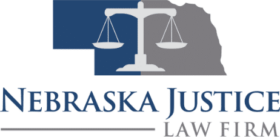Nursing home facilities are meant to meet the physical, social, and emotional needs of older adults. Unfortunately, that does not always happen. The very caregivers you trust may turn around and commit terrible acts of abuse or neglect.
If you suspect that a loved one has been neglected, abused, or suffered a decline in health due to inadequate care at a long-term care facility, contact an experienced attorney for help. You may be able to file a lawsuit that provides compensation and justice.
What is Nursing Home Neglect?
Nursing home neglect occurs when a staff member fails to provide a resident with an adequate standard of care, resulting in harm. Elder neglect can take many different forms, including:
- Medical neglect: This can be described as a failure to properly handle a resident’s medical needs.
- Neglect of personal hygiene: This happens when the staff does not help a resident maintain their hygiene. Hygiene includes things such as bathing, laundry, and dental care.
- Neglect of basic needs: This form of neglect is the failure to provide a resident with enough food or water. It also includes the failure to provide a safe environment.
- Emotional or social neglect: This includes ignoring a resident, leaving them alone for an unreasonable length of time, and other deficiencies in providing appropriate emotional and social care.
What is Nursing Home Abuse?
Nursing home abuse is often defined as a knowing, intentional, or negligent act by a staff member that causes harm to a resident. The most common types of abuse that elders experience are:
- Physical abuse: Hitting, pushing, or inappropriately restraining a resident all constitute physical abuse.
- Sexual abuse: This type of abuse includes any non-consensual sexual contact or advances. In many cases, am elder is unable to legally consent, often due to mental disorders or decline.
- Emotional or psychological abuse: Any attempts to intimidate or belittle a resident fall under this category. Emotional abuse takes many forms, including shouting, bullying, insulting, or cursing at a resident, as well as unjustly limiting their freedom to make their own choices.
- Financial abuse: This happens when someone takes money or assets from a resident without their full understanding or consent. Unscrupulous staff members may take an elder’s credit card, forge their signature, or engage in other exploitative practices for personal gain.
Abuse is not always perpetrated by nursing home employees. Sometimes, residents abuse other residents. In these situations, the responsibility still lies with the staff. They have a duty to ensure the safety of those in their care.
Signs of Nursing Home Abuse or Neglect
You can often recognize elder neglect and abuse by looking for certain red flags. There are signs that may indicate mistreatment is present at a nursing home, including:
- Bedsores or poor resident hygiene
- Signs of inadequate nutrition such as unusual weight loss
- Unusual changes in an attitude or personality
- Withdrawal from regular activities
- Unusual changes in financial situation
- Unexplained injuries, such as bruises, burns, or broken bones
- Arguments or tension between a staff member and elder
It is important to visit your loved one regularly, if possible, and be vigilant while you are with them. Some residents may not be willing or able to speak out about what they are going through.
Filing a Nursing Home Abuse or Neglect Lawsuit
Elder abuse or neglect is serious. The appropriate authorities should be notified of any imminent dangers or immediate health risks right away.
It is also in your best interest to contact an experienced elder abuse attorney. A lawyer can offer guidance on how to protect your loved one’s well-being and legal rights.
A lawyer may also find that a nursing home abuse or neglect lawsuit is advisable. A nursing home abuse lawsuit can provide your loved one with financial compensation while holding the responsible parties accountable. An attorney can help with every step of the process.

